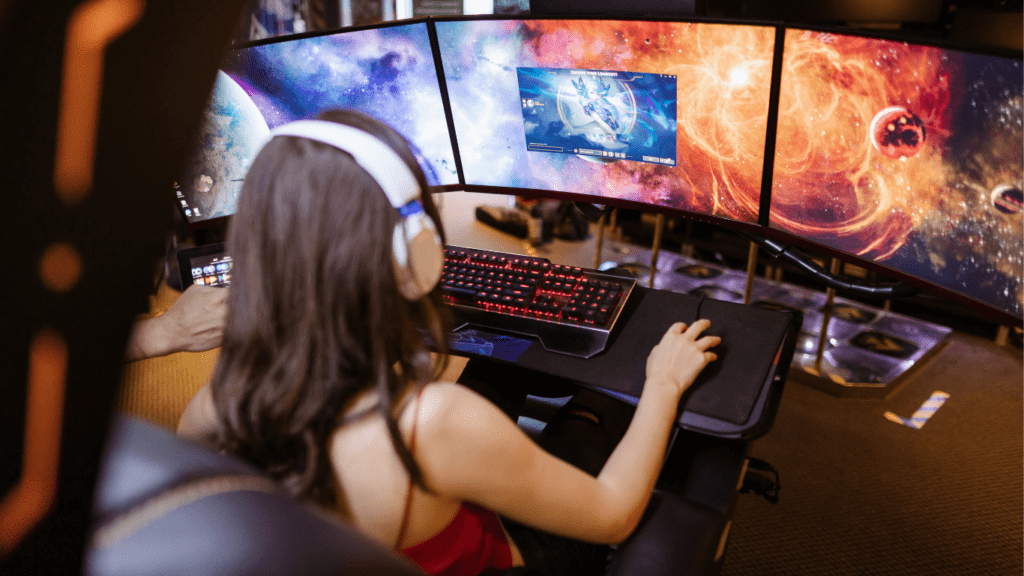The Rise of Women in Esports
In recent years, women’s participation in esports has grown significantly. According to a report by Newzoo, women make up 46% of global gamers. This shift is becoming evident in competitive scenes, where talented female players are gaining recognition and respect.
In 2019, women managed teams and owned esports franchises, breaking into roles not traditionally held by women. Entrepreneurs like Susie Kim, the former general manager of the London Spitfire, showcase this trend, leading successful teams and inspiring upcoming generations.
Tournaments dedicated to women have gained traction. The GirlGamer Esports Festival, launched in 2017, celebrates female talent across games like CS:GO and League of Legends. These events provide platforms for women to showcase their skills and compete at high levels, promoting gender diversity in esports.
Media coverage of female gamers and professionals continues to increase. Coverage ranges from player interviews to insights into the lives of women in esports, bringing attention to their achievements. This visibility helps change perceptions about women in gaming, bolstering their presence in the industry.
Mentorship and support programs focus on empowering women in esports. Initiatives like Women in Games aim to close the gender gap, supporting women through development programs and networking opportunities. Such efforts foster an inclusive environment, encouraging equal opportunities for all players.
Overcoming Challenges
Women in esports face significant barriers, but they’re making remarkable strides in addressing these issues.
Gender Stereotypes
- Gender stereotypes create obstacles for female gamers.
- Assumptions about women’s abilities often lead to their skills being undervalued.
- This bias manifests in online harassment and doubts about competence.
- Many female players encounter hostility while gaming, impacting their confidence and enjoyment.
- Initiatives like “AnyKey” support diversity and inclusion, working to challenge these stereotypes.
- By fostering a more inclusive dialogue, women can demonstrate their capabilities without facing preconceived notions.
Lack of Representation
- Representation remains a key hurdle in esports.
- Women are underrepresented in both professional gaming and leadership roles.
- This lack of visibility affects opportunities for aspiring female gamers.
- With fewer role models to look up to, it’s harder for women to envision themselves in esports careers.
- Organizations like “Women in Games” emphasize mentorship and networking to help bridge this gap.
- By promoting female participation and leadership, the esports industry can create a more balanced and representative space.
Key Figures and Role Models
Women in esports have made significant strides, with key figures inspiring the next generation. Their achievements challenge industry norms.
Pioneering Women Gamers
Several pioneering women gamers have made history in esports. Katherine “Mystik” Gunn won over $120,000 in a single season of the Championship Gaming Series. Scarlett, known as the “Queen of StarCraft II,” became the first woman to win a major international tournament for the game. Her victory at the 2018 Intel Extreme Masters in PyeongChang marked a significant milestone. These successes demonstrate the potential and skill women bring to competitive gaming.
Influential Streamers and Content Creators
Influential streamers and content creators have increased visibility for women in esports. Imane “Pokimane” Anys, with millions of followers, uses her platform to advocate for diversity and inclusion. Alinity and Valkyrae, other notable content creators, have built large and engaged communities. Their success highlights the power of female voices in the gaming industry, encouraging others to pursue careers both in front of the camera and behind the scenes.
Initiatives and Organizations Supporting Women

Numerous initiatives and organizations actively support women in esports, breaking barriers and creating opportunities for them to thrive in the gaming industry. These efforts aim to empower women, foster inclusivity, and promote equal representation.
Community Programs
- Community programs play a crucial role in supporting women gamers.
- “Women in Games” provides mentorship and networking opportunities, connecting aspiring female players with established professionals.
- “AnyKey,” an advocacy group, focuses on creating inclusive gaming spaces, directly challenging biases and harassment.
- Additionally, “iFeminist” hosts workshops and online forums, offering resources and discussions to help women navigate the esports landscape confidently.
Professional Leagues and Events
- Professional leagues and events are instrumental in elevating female talent.
- The “GirlGamer Esports Festival” hosts tournaments exclusively for women, allowing them to compete at high levels and gain visibility.
- “Valorant Game Changers” is an initiative from Riot Games, creating competitive opportunities and shaping a positive future for women in esports.
- Similarly, “W Series Esports League” offers a platform for female racers, expanding representation beyond traditional gaming genres.
Impact on the Gaming Industry
Women in esports are reshaping the gaming landscape through increased diversity and potential future developments. This impact challenges norms and drives industry-wide change.
Diversity and Inclusion
Women are enhancing diversity in esports by participating across multiple roles, from players and team managers to content creators. For example, events like the GirlGamer Esports Festival showcase female talent, providing opportunities for more inclusive competition. Initiatives like “AnyKey” promote diversity by creating supportive environments where female gamers thrive. As women take on influential roles, they contribute to a more balanced representation, setting new cultural standards and expectations within the gaming community.
Future Prospects
The future of women in esports looks promising with increasing representation paving the way for more opportunities. As women gamers gain visibility, their success inspires others to join, expanding the talent pool. Organizations such as “Women in Games” emphasize mentorship, offering aspiring female gamers pathways to professional careers. Esports events designed for women, like “Valorant Game Changers,” forecast a dynamic and inclusive future, reshaping the industry by integrating diverse perspectives and expertise. The impact of these developments signifies a transformative era in gaming where gender disparity diminishes progressively.





